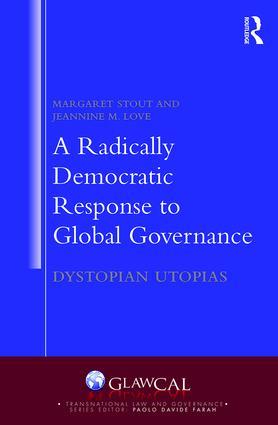
Zustellung: Fr, 11.07. - Di, 15.07.
Versand in 7 Tagen
VersandkostenfreiBestellen & in Filiale abholen:
This book presents a critique of dominant governance theories grounded in an understanding of existence as a static, discrete, mechanistic process, while also identifying the failures of theories that assume dynamic alternatives of either a radically collectivist or individualist nature. The authors develop a typology of four dominant approaches to governance, providing a systematic analysis of each. The book then goes on to develop an alternative governance approach, an approach that is neither individualist nor collectivist, while still maintaining the dynamic character required for cultural processes that accommodate integrative change.
Inhaltsverzeichnis
Foreword- Paolo Davide Farah
Part I Barriers to Global Governance 1. Introduction 2. Why Now? 3. Grounding Governance in Ontology 4. Crafting and Using a Governance Typology Part II Primary Governance Theories 5. Hierarchical Governance 6. Atomistic Governance 7. Holographic Governance 8. Fragmented Governance Part III Dystopian Utopias 9. Analysis of the Primary Governance Approaches 10. The Arc of Reform 11. The Arc of Reification Part IV Affirmation of a Radically Democratic Approach to Governance 12. Why Integrative Governance? 13. Pursuing Integrative Governance
Part I Barriers to Global Governance 1. Introduction 2. Why Now? 3. Grounding Governance in Ontology 4. Crafting and Using a Governance Typology Part II Primary Governance Theories 5. Hierarchical Governance 6. Atomistic Governance 7. Holographic Governance 8. Fragmented Governance Part III Dystopian Utopias 9. Analysis of the Primary Governance Approaches 10. The Arc of Reform 11. The Arc of Reification Part IV Affirmation of a Radically Democratic Approach to Governance 12. Why Integrative Governance? 13. Pursuing Integrative Governance
Produktdetails
Erscheinungsdatum
12. Dezember 2016
Sprache
englisch
Seitenanzahl
262
Autor/Autorin
Margaret Stout, Jeannine M. Love
Verlag/Hersteller
Produktart
gebunden
Gewicht
561 g
Größe (L/B/H)
240/161/19 mm
ISBN
9781138654051
Entdecken Sie mehr
Bewertungen
0 Bewertungen
Es wurden noch keine Bewertungen abgegeben. Schreiben Sie die erste Bewertung zu "A Radically Democratic Response to Global Governance" und helfen Sie damit anderen bei der Kaufentscheidung.









